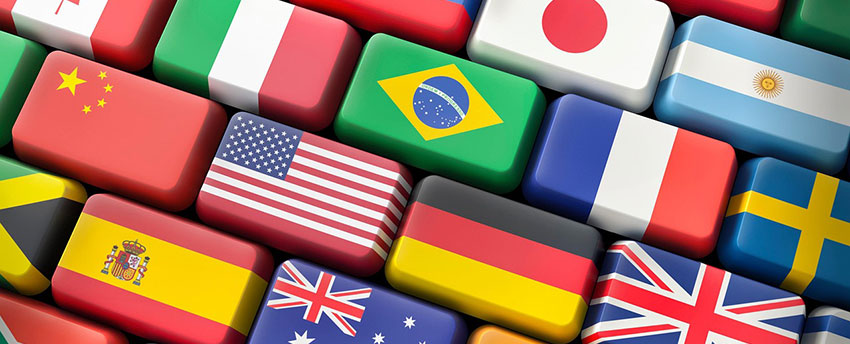
Global involvement has never been stronger. From global trade and telecommuting to expatriate relocation and global education, language communication is at the center of this revolution. Yet translation achievement is more than word-moving. It’s about maintaining context, precision, and cultural subtlety. That is where seasoned online translation service providers are surfacing, offering individuals and institutions with consistency that will never be possible with machine-based aids.
The market for language services reached more than $65 billion in 2023, says CSA Research, where the majority of growth came from online-based platforms. Universities, medical institutions, law firms, and business organizations alike are all increasingly dependent on secure online services to translate anything from contracts to academic diplomas. Immigrants seeking visas or moving abroad, on the other hand, depend on sworn translators that can generate certified translation that is acceptable to embassies and government offices.
“Translation is no longer a supporting function; it’s a foundation for cross-border trust,” says leading translation service provider Protranslate’s CEO and founder Kerem Kalkanci. “When people send legal, medical, or educational documents, they are not just sending words. They are entrusting vulnerable parts of their lives and businesses into the hands of other individuals. That includes professionally translating online.”
…
Read entry
- Categories: Languages
- 8 Sep 2025
- 0 comments

The Spanish language has a rich and fascinating history that has evolved over centuries.
Its origins can be traced back to Latin (like French, Italian and Portuguese), with significant influences from the Roman Empire.
As time passed, Vulgar Latin transformed into what is now known as Castilian Spanish, with the Iberian Peninsula playing a crucial role.
Spanish also made its mark in the Americas, where it developed differently across regions.
The language underwent standardization with the help of the Royal Spanish Academy, while also incorporating Arabic influences from the time of Muslim rule, who were in the Iberian Peninsula for almost eight centuries (from 711 to 1492)
Today, Spanish has become a global language, with widespread usage and official status in many countries.
Origins of the Spanish Language
…
Read entry

The English language has evolved over centuries, shaped by a rich and complex history.
Its origins lie with the Germanic peoples of northern Europe, and the language was influenced by Viking invasions and the Norman conquest. Old English reflected the varied origins of the Anglo-Saxon kingdoms, while Middle English saw significant changes in pronunciation and grammar. Early Modern English incorporated loans from Latin and other European languages, and modern English became a dominant global language through British colonization.
Phonological and grammatical changes contribute to its unique character, while regional dialects and accents add diversity.
Origins of the English language
Germanic influence in England
The origins of the English language can be traced back to the influence of Germanic tribes in England. During the Roman Empire, Germanic-inhabited areas of Germania remained independent, and tribes like the Angles, Saxons, and Jutes settled in Britain post the end of Roman rule. This migration led to the establishment of the heptarchy – seven Anglo-Saxon kingdoms that laid the foundation for Proto-English.
…
Read entry
- Categories: Culture, Languages
- 16 Jan 2024
- 0 comments

Moving to a new country is exciting, but it would be wrong to suggest there aren’t any hurdles for those brave enough to make the leap to pastures new. For some, the prospect of learning a new language is a daunting task.
But just how vital is picking up a second tongue? While it would be wrong to suggest it doesn’t matter at all, there’s definitely an argument to be had for those who don’t have the time or skill set to pick up a totally new vernacular.
Here are some pros and cons when it comes to learning a native language after relocating internationally.
…
Read entry

Spanish is a language derived from the Latin alphabet and blended with the Arabic language, taking its present form. Spanish has gained its prevalence, thanks to the population and officially speaking countries, and it is spreading more and more every day.
It is among the languages that should be known by those who seek a job in the education and tourism sector, or Erasmus students in Spain, and even just for fun to meet more people.
Spain has also hosted many civilizations throughout history; with its deep-rooted history, rich culture and friendly people, it will offer you a pleasant learning period.
After this article, you’ll gain some basic communication skills and be ready to create a conversation with native Spanish speakers.

…
Read entry

Recently, we all are spending too much time on Netflix. Finishing series, looking for a new one, and then finishing it… This situation is just a vicious circle. Maybe, you are feeling bad about it because you can’t create time for other things… Like language learning. But, don’t worry! You can keep watching series on Netflix and improve your Spanish level at the same time. There are marvelous Spanish series just a click away to help you. So, let’s start exploring.
…
Read entry

As Hola People, we aware of how is important for children to learn a second language like adults. And, we are willing to tell you 5 reasons for children to learn a foreign language.
Let’s begin!
1- For speaking to more people 
Do you know how many languages are spoken in the world? And, how many people can you communicate with if you learn how to speak one more language? Let me tell you, Spanish gets you to speak approximately 420 million people. Spanish is the third most spoken language in the world.
When you learn a foreign language as a child or teach a second language to your children and they will have a whole life to get advantages of it. To have more career opportunities, to understand deep insight about how others see the world, to have more fun when you travel, to have varied friendships and so on.
 2- It’s easier to learn for children
2- It’s easier to learn for children
Years ago people believed that learning a second language would confuse a child. Now, research proves that children who speak a second language perform better than non-bilingual students, in standardized tests.
Let’s imagine, you and your child start to learn Spanish at the same time. Do you know who will speak better after a year? Definitely, the answer is your child. And, many researchers believe that learning a foreign language before the puberty and even better earlier it allows children to speak more fluently, almost like native speakers because their brain is as “sponges” for learning a language. Also, they speak beyond biases. They don’t care if they make a mistake about grammar, vocabulary. That makes them speak easier and faster.
Also, there’s much less complex information to digest for children. Kids usually only learn to associate words with their meanings. But in adulthood, we make it more difficult to learn a second language.
…
Read entry

“Baguette, Paris, c’est la vie, j’adore la France!”, “Montmatre, le Louuuvre, le fromage, comme ci comme ca… “ Those are the word sand expressions that I keep hearing all the time from foreigners. But the French language is way more than that.
Let’s go back really briefly in history. French was born 2000 years ago before JC in La Gaule known now as France. The French language derives from the Celtic, Latine and Greek languages. In the 9th century, different dialects started to emerge in France but it is only in the 13th century that a specific language has appeared. Over the centuries, the name of the language as evolved from Francien (middle age period) to Francois (13th) and finally Francais during the 15th century.
Nowadays, the French language contains more than 33 different sounds, 140 ways to write them with only 23 letters … And rumours have it that to be considered fluent in French you are supposed to know 500 different grammar rules. No worries, I am French, I studied Literature in High-school and I may know 50 of them…
…
Read entry

In the world, there are currently almost 500 million people who speak Spanish with their mother tongue and many others who are learning it or who speak it with a second language. Here are some reasons why you should learn Spanish:
- Spanish is the language in which more than 20 countries in the world communicate. And is that in addition to Spain, which is the country where the language was born, is spoken in all the countries of Central and South America, except Brazil.
…
Read entry

Learning a new language is undoubtedly one of the best decisions one can make: it improves the way you think, enriches your knowledge and opens so many doors, both personally and professionally. However, many may argue that despite being very useful, it is also a difficult target to reach.
…
Read entry
- Categories: Education, Languages, Learning, Study, Tips
- Tags: Communication, English, German, Italian, Languages, music, Spanish, Study
- 16 Feb 2021
- 0 comments
Hola People » Languages










 2- It’s easier to learn for children
2- It’s easier to learn for children

